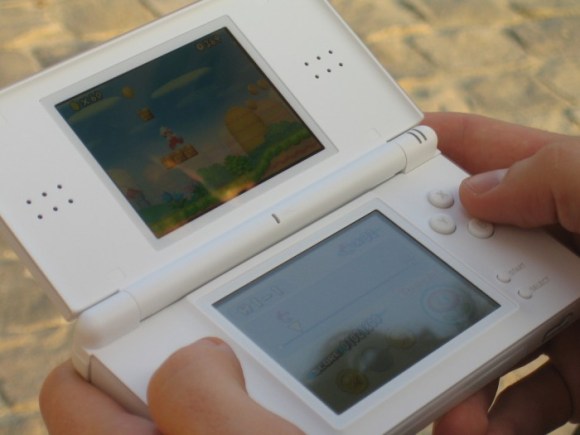
As Japan’s penal system struggles to cope with a rising number of older inmates, a number of prisons are taking unusual steps to help inmates stay healthy in mind as well as body.
The number of prisoners in Japan aged 65 or over increased almost five-fold in the twenty years up to 2013. This ageing prison population means institutions are bringing in innovative programmes to slow the onset of dementia in inmates, from yoga to hand-held video games.
Oita Prison, on the eastern coast of Kyushu, is one such institution taking steps to combat this growing problem. 21 percent of inmates at Oita Prison are over 65, slightly higher than the national average of 18.2 percent. For point of comparison, just 2.2 percent of the prison population in the United States is over 65. “After they [prisoners with dementia] are incarcerated, their condition worsens,” a prison official told the Mainichi Shimbun, who said he’s observed inmates calling out in confusion, hallucinating and hearing voices.
In October 2010, Oita Prison began a special programme aimed at preventing dementia in the prison’s ageing population. Inmates attend sessions two or three times a month, on a voluntarily basis. As well as lectures and exercise sessions such as stretching, the programme includes brain training with a Nintendo DS for each inmate in the programme.
“The DS is the most fun part,” says one inmate in his sixties who is serving time for fraud, adding,”I want to keep my brain sharp by practicing like this.”
In 1994, there were 450 over-65s in prisons in Japan; by 2013, that had risen almost five-fold to 2,228 (if that number still sounds low, it’s because Japan has a low prison population compared to other developed countries – 59 prisoners per 100,000 people). The overall prison population in Japan is actually declining, but the number of older inmates continues to rise.
Other prisons are offering aerobics and yoga sessions targeting older inmates, and programmes aimed to equip older people with the skills and knowledge to avoid alcohol abuse, another common problem.
But reoffending amongst older released prisoner remains a key concern, Hirofumi Nojiri, the warder in charge of the over-65s programme at Oita Prison, told Mainichi. “After they get out of prison, I hope they will take steps to continue to look after their [mental] health, such as using the DS. We need a support system for prisoners once they are released, too.”
Source: Mainichi Shimbun
Featured image: wonderhowto

 Runny curry, no pudding spoons among complaints of Japanese prison inmates
Runny curry, no pudding spoons among complaints of Japanese prison inmates Japanese prison mascot appears in children’s colouring book made by prison inmates
Japanese prison mascot appears in children’s colouring book made by prison inmates We spend Culture Day in prison, food was arguably better than Yoshinoya
We spend Culture Day in prison, food was arguably better than Yoshinoya This is a pretty worrying chart for China’s demographic future
This is a pretty worrying chart for China’s demographic future Amazon Japan adds regulations for deliveries to prisons, the internet wonders why
Amazon Japan adds regulations for deliveries to prisons, the internet wonders why McDonald’s new Happy Meals offer up cute and practical Sanrio lifestyle goods
McDonald’s new Happy Meals offer up cute and practical Sanrio lifestyle goods All-you-can-drink Starbucks and amazing views part of Tokyo’s new 170 meter-high sky lounge
All-you-can-drink Starbucks and amazing views part of Tokyo’s new 170 meter-high sky lounge McDonald’s Japan releases a pancake pie for new retro kissaten coffeeshop series
McDonald’s Japan releases a pancake pie for new retro kissaten coffeeshop series Super Nintendo World expansion gets delayed for several months at Universal Studios Japan
Super Nintendo World expansion gets delayed for several months at Universal Studios Japan Studio Ghibli glasses cases let anime characters keep an eye on your spectacles
Studio Ghibli glasses cases let anime characters keep an eye on your spectacles Is the new Shinkansen Train Desk ticket worth it?
Is the new Shinkansen Train Desk ticket worth it? Kyoto’s 100 Demons yokai monster parade returns!
Kyoto’s 100 Demons yokai monster parade returns! Hamster abandoned at Tokyo ramen restaurant gets new home
Hamster abandoned at Tokyo ramen restaurant gets new home Daiso opens massive new 25,392-square foot Tokyo flagship store with its two sub-brands included
Daiso opens massive new 25,392-square foot Tokyo flagship store with its two sub-brands included Beautiful Sailor Moon manhole cover coasters being given out for free by Tokyo tourist center
Beautiful Sailor Moon manhole cover coasters being given out for free by Tokyo tourist center Disney princesses get official manga makeovers for Manga Princess Cafe opening in Tokyo
Disney princesses get official manga makeovers for Manga Princess Cafe opening in Tokyo More foreign tourists than ever before in history visited Japan last month
More foreign tourists than ever before in history visited Japan last month Starbucks reopens at Shibuya Scramble Crossing with new look and design concept
Starbucks reopens at Shibuya Scramble Crossing with new look and design concept Beautiful new Final Fantasy T-shirt collection on the way from Uniqlo【Photos】
Beautiful new Final Fantasy T-shirt collection on the way from Uniqlo【Photos】 Foreign English teachers in Japan pick their favorite Japanese-language phrases【Survey】
Foreign English teachers in Japan pick their favorite Japanese-language phrases【Survey】 Japanese convenience store packs a whole bento into an onigiri rice ball
Japanese convenience store packs a whole bento into an onigiri rice ball We try out “Chan Ramen”, an underground type of ramen popular in the ramen community
We try out “Chan Ramen”, an underground type of ramen popular in the ramen community Studio Ghibli releases Kiki’s Delivery Service chocolate cake pouches in Japan
Studio Ghibli releases Kiki’s Delivery Service chocolate cake pouches in Japan Japan’s bone-breaking and record-breaking roller coaster is permanently shutting down
Japan’s bone-breaking and record-breaking roller coaster is permanently shutting down New definition of “Japanese whiskey” goes into effect to prevent fakes from fooling overseas buyers
New definition of “Japanese whiskey” goes into effect to prevent fakes from fooling overseas buyers Our Japanese reporter visits Costco in the U.S., finds super American and very Japanese things
Our Japanese reporter visits Costco in the U.S., finds super American and very Japanese things Studio Ghibli unveils Mother’s Day gift set that captures the love in My Neighbour Totoro
Studio Ghibli unveils Mother’s Day gift set that captures the love in My Neighbour Totoro Foreign passenger shoves conductor on one of the last full runs for Japan’s Thunderbird train
Foreign passenger shoves conductor on one of the last full runs for Japan’s Thunderbird train Domino’s Japan now sells…pizza ears?
Domino’s Japan now sells…pizza ears? New Japanese KitKat flavour stars Sanrio characters, including Hello Kitty
New Japanese KitKat flavour stars Sanrio characters, including Hello Kitty Kyoto creates new for-tourist buses to address overtourism with higher prices, faster rides
Kyoto creates new for-tourist buses to address overtourism with higher prices, faster rides Sales of Japan’s most convenient train ticket/shopping payment cards suspended indefinitely
Sales of Japan’s most convenient train ticket/shopping payment cards suspended indefinitely Sold-out Studio Ghibli desktop humidifiers are back so Totoro can help you through the dry season
Sold-out Studio Ghibli desktop humidifiers are back so Totoro can help you through the dry season Japanese government to make first change to romanization spelling rules since the 1950s
Japanese government to make first change to romanization spelling rules since the 1950s Ghibli founders Toshio Suzuki and Hayao Miyazaki contribute to Japanese whisky Totoro label design
Ghibli founders Toshio Suzuki and Hayao Miyazaki contribute to Japanese whisky Totoro label design Doraemon found buried at sea as scene from 1993 anime becomes real life【Photos】
Doraemon found buried at sea as scene from 1993 anime becomes real life【Photos】 Tokyo’s most famous Starbucks is closed
Tokyo’s most famous Starbucks is closed One Piece characters’ nationalities revealed, but fans have mixed opinions
One Piece characters’ nationalities revealed, but fans have mixed opinions We asked a Uniqlo employee what four things we should buy and their suggestions didn’t disappoint
We asked a Uniqlo employee what four things we should buy and their suggestions didn’t disappoint Princesses, fruits, and blacksmiths: Study reveals the 30 most unusual family names in Japan
Princesses, fruits, and blacksmiths: Study reveals the 30 most unusual family names in Japan New line of anime panties slip off the animated characters on onto cold drink bottles 【Photos】
New line of anime panties slip off the animated characters on onto cold drink bottles 【Photos】 Japanese prison offers manga background work program, artwork offered online【Pics】
Japanese prison offers manga background work program, artwork offered online【Pics】 Japanese company proposes Marie Kondo as mascot for new “Spark Joy” police taser weapons
Japanese company proposes Marie Kondo as mascot for new “Spark Joy” police taser weapons Stay at the Nara Juvenile Prison hotel in Japan in 2020
Stay at the Nara Juvenile Prison hotel in Japan in 2020 Japanese conservatives call for ban on Angelina Jolie’s WWII movie
Japanese conservatives call for ban on Angelina Jolie’s WWII movie Japan’s “crying politician” found guilty of fraud
Japan’s “crying politician” found guilty of fraud Japan’s ‘agri-tech’ farming revolution
Japan’s ‘agri-tech’ farming revolution Survivor of North Korean gulags makes wrenching drawings of what happens inside
Survivor of North Korean gulags makes wrenching drawings of what happens inside Film about Japanese-Russian POW romance gets crowdfunding project for screening in Russia
Film about Japanese-Russian POW romance gets crowdfunding project for screening in Russia We try Muji’s new “communist” suit【Photos】
We try Muji’s new “communist” suit【Photos】 Japan now has video gamer chiropractic treatments to reduce discomfort and improve performance
Japan now has video gamer chiropractic treatments to reduce discomfort and improve performance Quiz of the Week: Round 6 (Now made with the tears of sad children*)
Quiz of the Week: Round 6 (Now made with the tears of sad children*) Japanese man assaults wife after learning she trolled his YouTube videos for six months
Japanese man assaults wife after learning she trolled his YouTube videos for six months Japan reports fewer children and more elderly people for 35th year in a row
Japan reports fewer children and more elderly people for 35th year in a row We sample blue Drift Ice Curry from the India of the Okhotsk Sea
We sample blue Drift Ice Curry from the India of the Okhotsk Sea
Leave a Reply